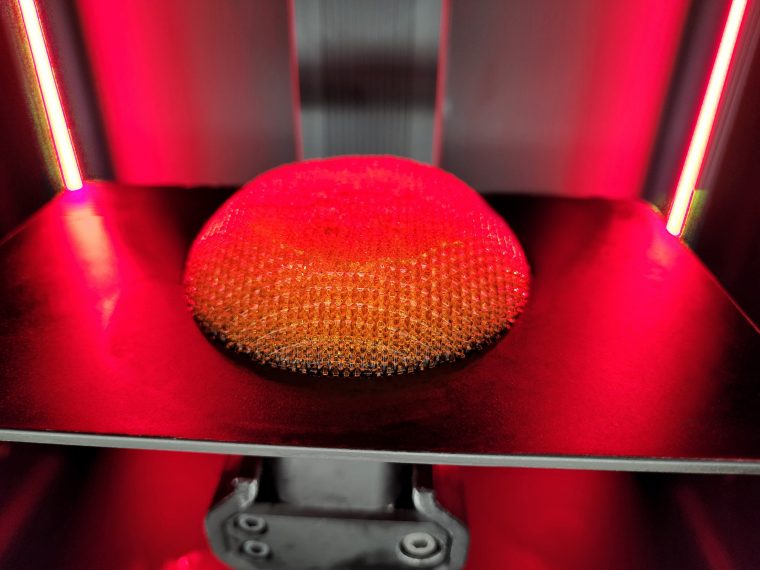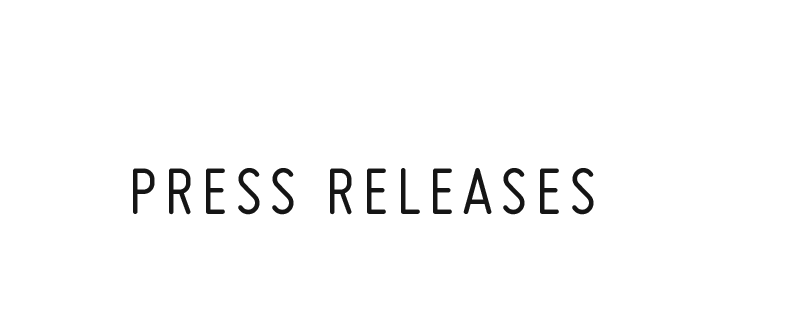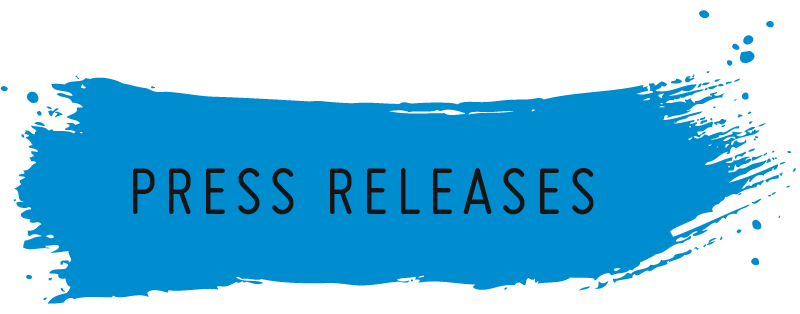- 3D Print Bureau
- 6K
- Agmatix
- Airwayz
- AM-Flow
- Appadda
- Caracol
- CG Trader
- CyberOptics
- e-Xstream
- GenCell
- GreenEye
- Impossible Objects
- Incus Media
- InkBit
- ITG
- JPB Systeme
- KeyProd
- Landa
- LEO Lane
- Lumet
- Magic Software
- MakerBot
- Marketiger
- Nano Dimension
- Paragon Rapid Technologies
- PearlX
- Plant & Bean
- Redefine Meat
- Replique
- Ripples
- Sakuu Corporation
- SolarEdge
- StoreDot
- Stratasys
- Sunrock
- The Bespoke Group
- Trigo
- UltiMaker
- Xjet
Stratasys and CollPlant Unite Technologies to Transform Healthcare with Industrial-Scale Bioprinting of Tissues and Organs
Joint development and commercialization agreement will initially focus on development of bioprinting solution for CollPlant’s regenerative breast implants, addressing $2.6 billion market opportunity
Stratasys’ P3 technology-based bioprinter and CollPlant’s rhCollagen-based bioinks also ideal for future innovation and production of additional human tissues and organs
Companies to cross-promote respective bioprinting products
EDEN PRAIRIE, Minn. & REHOVOT, Israel, April 4, 2023 — Stratasys Ltd. (Nasdaq: SSYS) and CollPlant Biotechnologies (Nasdaq: CLGN) today announced a joint development and commercialization agreement to collaborate on the development of a solution to bio-fabrication human tissues and organs using Stratasys’ P3 technology-based bioprinter and CollPlant’s rh-Collagen-based bioinks. The first project focuses on the development of an industrial-scale solution for CollPlant’s regenerative breast implants program.
Stratasys is a leader in polymer 3D printing solutions. CollPlant is a pioneering regenerative and aesthetics medicine company developing innovative technologies and products based on its plant-based collagen for tissue regeneration and organ manufacturing.
The new bioprinter, based on Stratasys’ precise P3™ 3D printing technology in combination with CollPlant’s flagship bioinks, will enable the production of CollPlant’s state of the art breast implants, which are being designed to regenerate an individual’s natural breast tissue without eliciting immune response, providing a potentially revolutionary alternative for both aesthetic and reconstructive procedures.
Currently the global breast implant market is estimated to be $2.6 billion,1 while breast reconstruction and augmentation procedures represent the second most common plastic surgery procedure performed worldwide today2. The most common breast augmentation or reconstruction procedures today are based on synthetic silicone breast implantations, an artificial substitution for natural regenerated tissue with risks of complications.
Under the agreement, both companies have agreed to cross-promote each other’s bioprinting products Stratasys’s bioprinter will be offered to customers together with CollPlant’s bioinks, and similarly Stratasys’ bioprinter will be offered to CollPlant’s business partners and customers.
“Through this partnership with CollPlant, we have an important opportunity to transform healthcare with bioprinting to improve the lives of patients undergoing breast augmentation or reconstruction procedures,” said Stratasys CEO Dr. Yoav Zeif. “This agreement is well-aligned with our strategy to deliver complete solutions for high-growth industry applications with our ecosystem of partners, and the production scale and precision 3D printing capabilities of Stratasys’ P3 Programmable Photopolymerization technology are a particularly strong fit for bioprinting applications. We believe that partnering with CollPlant will enable us to accelerate the industrialization of bioprinting for regenerative medicine, and we look forward to collaborating towards the successful commercialization of CollPlant’s novel regenerative breast implants and beyond.”
Yehiel Tal, CEO of CollPlant, commented, “Stratasys is leading in additive manufacturing and we are excited to collaborate with them on this transformative initiative. The P3 technology allows printing with high resolution and process control, and we believe that the combined, pioneering technologies of both companies will streamline the development and production process so that we have the most efficient means to produce our regenerative breast implants and other potential tissues and organs. We believe that our rhCollagen-based regenerative implant has the potential to overcome the challenges of existing breast procedures that use silicone implants or autologous fat tissue transfer.”
In January 2023, CollPlant announced that it successfully completed a large-animal study for its 3D bioprinted regenerative breast implants. The preclinical study demonstrated progressive stages of tissue regeneration after three months, as highlighted by the formation of maturing connective tissue and neovascular networks within the implants, with no adverse events reported. Based on these positive results, CollPlant is planning to initiate a follow-up, large-animal study in the second half of 2023 using commercial-size implants to support subsequent human studies and future product commercialization.
1 Breast Implant Market; Global Industry Trends, Share, Size, Growth, Opportunity and Forecast 2023-2028, IMARC Group
2 ISAPS International Survey on Aesthetic/Cosmetic Procedures, 2021
-
 The new bioprinter, based on Stratasys’ precise P3™ 3D printing technology in combination with CollPlant's flagship bioinks, will enable the production of CollPlant’s state of the art breast implants
The new bioprinter, based on Stratasys’ precise P3™ 3D printing technology in combination with CollPlant's flagship bioinks, will enable the production of CollPlant’s state of the art breast implants
Click here to download 300dpi images
Stratasys et CollPlant unissent leurs technologies pour transformer les soins de santé grâce à la bio-impression des tissus et des organes à l'échelle industrielle
Un accord de développement et de commercialisation conjoint se concentrera initialement sur le développement d’une solution de bio-impression pour les implants mammaires régénératifs de CollPlant, avec une évaluation de 2,6 milliards de dollars d’opportunité de marché
La bio-imprimante basée sur la technologie P3 de Stratasys et les bio-encres à base de rhCollagen de CollPlant sont également idéales pour l’innovation future et la production de tissus et d’organes humains supplémentaires
Les entreprises feront la promotion croisée des produits de bio-impression respectifs
EDEN PRAIRIE, Minn. et REHOVOT, Israël, 04 avril 2023 – Stratasys Ltd. (Nasdaq : SSYS) et CollPlant Biotechnologies (Nasdaq : CLGN) ont annoncé aujourd’hui un accord de développement et de commercialisation conjoint dans le but de collaborer sur le développement d’une solution de bio-fabrication de tissus et d’organes humains via la bio-imprimante basée sur la technologie P3 de Stratasys et des bio-encres à base de rh-Collagen de CollPlant. Le premier projet porte sur le développement d’une solution à l’échelle industrielle pour le programme d’implants mammaires régénératifs de CollPlant.
Stratasys est un leader dans le secteur des solutions d’impression 3D polymères. CollPlant est une entreprise pionnière en médecine régénérative et esthétique, qui développe des technologies et des produits innovants basés sur son collagène végétal destiné à la régénération des tissus et à la fabrication d’organes.
La nouvelle bio-imprimante, basée sur la technologie d’impression 3D P3™ précise de Stratasys associée aux bio-encres phares de CollPlant, permettra la production d’implants mammaires de pointe de CollPlant, conçus pour régénérer le tissu mammaire naturel d’une personne sans provoquer de réponse immunitaire, offrant ainsi une alternative potentiellement révolutionnaire pour les procédures esthétiques et reconstructives.
Actuellement, le marché mondial des implants mammaires est estimé à 2,6 milliards de dollars,1 tandis que les procédures de reconstruction et d’augmentation mammaires représentent la deuxième procédure de chirurgie plastique la plus pratiquée dans le monde aujourd’hui2. Actuellement, les procédures d’augmentation ou de reconstruction mammaire les plus courantes sont basées sur des implantations mammaires en silicone synthétique, une substitution artificielle au tissu naturel régénéré avec des risques de complications.
En vertu de leur accord, les deux sociétés ont convenu communément de faire la promotion croisée des produits de bio-impression ; la bio-imprimante de Stratasys sera proposée aux clients avec les bio-encres de CollPlant et la bio-imprimante de Stratasys sera proposée aux partenaires commerciaux et aux clients de CollPlant.
« Grâce à ce partenariat avec CollPlant, nous avons une occasion incroyable de transformer les soins de santé grâce à la bio-impression afin d’améliorer la vie des patientes subissant des procédures d’augmentation mammaire ou de reconstruction », a déclaré le PDG de Stratasys, le Dr Yoav Zeif. « Cet accord est bien aligné sur notre stratégie visant à fournir des solutions complètes pour les applications industrielles à forte croissance avec notre écosystème de partenaires, et l’échelle de production et les capacités d’impression 3D de précision de la technologie de photopolymérisation programmable P3 de Stratasys sont particulièrement adaptées aux applications de bio-impression. Nous pensons que le partenariat avec CollPlant nous permettra d’accélérer l’industrialisation de la bio-impression pour la médecine régénérative, et nous sommes impatients de participer à la commercialisation réussie des nouveaux implants mammaires régénératifs de CollPlant. »
Yehiel Tal, le PDG de CollPlant, a commenté : « Stratasys est le leader en termes de fabrication additive et nous sommes ravis de collaborer avec eux sur cette initiative transformatrice. La technologie P3 permet d’imprimer avec une résolution élevée et un contrôle des processus, et nous pensons que les technologies pionnières combinées des deux sociétés vont rationaliser le processus de développement et de production pour mettre à notre disposition les moyens les plus efficaces pour produire nos implants mammaires régénératifs et d’autres tissus potentiels et organes. Nous pensons que notre implant régénératif à base de rhCollagen a le potentiel de surmonter les défis des procédures mammaires existantes qui utilisent des implants en silicone ou un transfert de tissu adipeux autologue. »
En janvier 2023, CollPlant a annoncé avoir terminé avec succès une étude sur de grands animaux pour ses implants mammaires régénératifs bio-imprimés en 3D. L’étude pré-clinique a démontré des stades progressifs de régénération tissulaire après trois mois, comme le souligne la formation de tissus conjonctifs matures et de réseaux néovasculaires au sein des implants, sans qu’aucun événement indésirable n’ait été signalé. Sur la base de ces résultats positifs, CollPlant prévoit de lancer une étude de suivi sur de grands animaux au second semestre 2023 en utilisant des implants de taille commerciale pour soutenir les études humaines ultérieures et la commercialisation future du produit.
1 Breast Implant Market; Global Industry Trends, Share, Size, Growth, Opportunity and Forecast (Marché des implants mammaires ; tendances mondiales de l’industrie, part, taille, croissance, occasion et prévisions 2023-2028), Groupe IMARC
2 Enquêtes internationales ISAPS sur les procédures esthétiques/cosmétiques, 2021
-
 La nouvelle bio-imprimante, basée sur la technologie d’impression 3D P3™ précise de Stratasys associée aux bio-encres phares de CollPlant, permettra la production d’implants mammaires de pointe de CollPlant
La nouvelle bio-imprimante, basée sur la technologie d’impression 3D P3™ précise de Stratasys associée aux bio-encres phares de CollPlant, permettra la production d’implants mammaires de pointe de CollPlant
Click here to download 300dpi images
Stratasys und CollPlant vereinen Technologien, um das Gesundheitswesen durch den Bioprinting von Geweben und Organen im industriellen Maßstab zu verändern.
Die Vereinbarung über gemeinsame Entwicklung und Vermarktung konzentriert sich zunächst auf die Entwicklung einer Bioprinting-Lösung für die regenerativen Brustimplantate von CollPlant – eine Lösung mit einer Marktchance von 2,6 Milliarden US-Dollar.
Der auf der P3-Technologie von Stratasys basierende Biodrucker und die auf rh-Kollagen basierenden Biotinten von CollPlant sind zudem ideal für künftige Innovationen und die Herstellung weiterer menschlicher Gewebe und Organe geeignet.
Die Unternehmen werben gegenseitig für ihre Bioprinting-Produkte.
EDEN PRAIRIE, Minn. & REHOVOT, Israel, 04 April 2023 — Stratasys Ltd. (Nasdaq: SSYS) und CollPlant Biotechnologies (Nasdaq: CLGN) veröffentlichten heute eine Vereinbarung über die gemeinsame Entwicklung und Kommerzialisierung einer Lösung zur Biofabrikation menschlicher Gewebe und Organe unter Verwendung des auf der P3-Technologie von Stratasys basierenden Biodruckers und der auf rh-Kollagen basierenden Biotinten von CollPlant. Das erste Projekt konzentriert sich auf die Entwicklung einer Lösung zur Fertigung der regenerativen Brustimplantate von CollPlant im industriellen Maßstab.
Stratasys ist ein führender Anbieter von 3D-Drucklösungen auf Polymerbasis. CollPlant ist ein innovatives Unternehmen für regenerative und ästhetische Medizin, das neue Technologien und Produkte auf der Grundlage seines pflanzlichen Kollagens für die Geweberegeneration und Organherstellung entwickelt.
Der neue Biodrucker, der auf der präzisen 3D-Drucktechnologie P3™ von Stratasys basiert und mit den führenden Biotinten von CollPlant arbeitet, wird die Produktion der hochmodernen Brustimplantate von CollPlant ermöglichen. Diese können das natürliche Brustgewebe einer Person regenerieren, ohne eine Immunreaktion auszulösen, und somit eine potenziell revolutionäre Alternative sowohl für ästhetische als auch für rekonstruktive Verfahren darstellen.
Derzeit wird der weltweite Markt für Brustimplantate auf 2,6 Milliarden Dollar geschätzt1. Brustrekonstruktionen und -vergrößerungen sind die zweithäufigsten plastisch-chirurgischen Eingriffe, die heute weltweit durchgeführt werden2. Die häufigsten Verfahren zur Brustvergrößerung oder -rekonstruktion verwenden heute synthetische Silikonbrustimplantate. Bei diesem künstlichen Ersatz für natürliches, regeneriertes Gewebe besteht das Risiko von Komplikation.
Beide Unternehmen haben vereinbart, ihre Biodruck-Produkte gegenseitig zu vermarkten. Stratasys wird seinen Kunden den Biodrucker zusammen mit den Biotinten von CollPlant anbieten, und CollPlant wird ihn seinen Geschäftspartnern und Kunden anbieten.
„Durch diese Partnerschaft mit CollPlant können wir das Gesundheitswesen durch den Einsatz von Biodruck verändern und das Leben von Patientinnen verbessern, die sich einer Brustvergrößerung oder -rekonstruktion unterziehen”, sagte Dr. Yoav Zeif, CEO von Stratasys. „Diese Vereinbarung passt gut zu unserer Strategie, mit unserem Partner-Ökosystem Komplettlösungen für wachstumsstarke Industrieanwendungen zu liefern. Das mögliche Produktionsvolumen und die präzisen 3D-Druckfähigkeiten der P3-Technologie (Programmable Photopolymerization) von Stratasys eignen sich besonders gut für Biodruckanwendungen. Wir sind überzeugt, dass uns die Partnerschaft mit CollPlant in die Lage versetzen wird, die Industrialisierung des Biodrucks für die regenerative Medizin zu beschleunigen, und wir freuen uns auf die Zusammenarbeit bei der erfolgreichen Kommerzialisierung der neuartigen regenerativen Brustimplantate von CollPlant und anderer Produkte.”
Yehiel Tal, CEO von CollPlant, kommentierte: „Stratasys ist führend in der additiven Fertigung, und wir freuen uns, mit ihnen bei dieser transformativen Initiative zusammenzuarbeiten. Die P3-Technologie ermöglicht hochauflösendes Drucken mit Ablaufkontrolle. Die kombinierten, bahnbrechenden Technologien beider Unternehmen werden den Entwicklungs- und Produktionsablauf rationalisieren, da wir über die effizientesten Mittel zur Herstellung unserer regenerativen Brustimplantate und anderer potenzieller Gewebe und Organe verfügen. Wir sind sicher, dass unser regeneratives Implantat auf der Basis von rh-Kollagen das Potenzial hat, die Herausforderungen bestehender Verfahren zur Brustvergrößerung oder -rekonstruktion zu überwinden, bei denen Implantate aus Silikon oder Eigenfettgewebe verwendet werden.”
Im Januar 2023 gab CollPlant bekannt, dass eine Großtierstudie über die 3D-biogedruckten regenerativen Brustimplantate des Unternehmens erfolgreich abgeschlossen wurde. Die präklinische Studie zeigte nach drei Monaten progressive Stadien der Geweberegeneration mit Bildung von heranreifendem Bindegewebe und neovaskulären Netzwerken innerhalb der Implantate, ohne dass unerwünschte Ereignisse gemeldet wurden. Ermutigt durch diese positiven Ergebnisse plant CollPlant in der zweiten Jahreshälfte 2023 eine Folgestudie an Großtieren mit Implantaten in handelsüblicher Größe, als Voraussetzung für nachfolgende Studien am Menschen und eine künftige Produktvermarktung.
1 „Breast Implant Market: Global Industry Trends, Share, Size, Growth, Opportunity and Forecast 2023-2028”
2 ISAPS International Survey on Aesthetic/Cosmetic Procedures, 2021
-
 Der neue Bioprinter, der auf der präzisen P3™ 3D-Drucktechnologie von Stratasys in Kombination mit den führenden Biotinten von CollPlant basiert, wird die Herstellung der hochmodernen Brustimplantate von CollPlant ermöglichen
Der neue Bioprinter, der auf der präzisen P3™ 3D-Drucktechnologie von Stratasys in Kombination mit den führenden Biotinten von CollPlant basiert, wird die Herstellung der hochmodernen Brustimplantate von CollPlant ermöglichen
Click here to download 300dpi images
Le tecnologie di Stratasys e CollPlant si uniscono per rivoluzionare il settore dell'assistenza sanitaria attraverso la biostampa di tessuti e organi su scala industriale
L’accordo di sviluppo congiunto e commercializzazione si concentrerà inizialmente sulla messa a punto di una soluzione di biostampa per le protesi mammarie rigenerative di CollPlant, a fronte di una opportunità di mercato stimata in 2,6 miliardi di dollari
La biostampante con tecnologia P3 di Stratasys e i bioinchiostri a base di rhCollagen di CollPlant promettono di essere la soluzione ideale anche per l’innovazione futura e la produzione di ulteriori tessuti e organi umani
Le aziende promuovono in modo incrociato i rispettivi prodotti di bioprinting
EDEN PRAIRIE (Minnesota) e REHOVOT (Israele), 04 aprile 2023 — Stratasys Ltd. (Nasdaq: SSYS) e CollPlant Biotechnologies (Nasdaq: CLGN) hanno annunciato oggi un accordo di sviluppo congiunto e commercializzazione per la messa a punto di una soluzione per biofabbricare tessuti e organi umani supportata dalla biostampante con tecnologia P3 di Stratasys e dai bioinchiostri a base di rh-Collagen di CollPlant. Il primo progetto è incentrato sullo sviluppo di una soluzione su scala industriale per il programma di protesi mammarie rigenerative di CollPlant.
Stratasys è leader nelle soluzioni di stampa 3D di polimeri, mentre CollPlant è un’azienda all’avanguardia nel campo della medicina rigenerativa ed estetica, che sviluppa tecnologie e prodotti innovativi a partire dal collagene di origine vegetale per la rigenerazione dei tessuti e la produzione di organi.
La nuova biostampa, che si avvale della tecnologia di stampa 3D ad alta precisione P3™ di Stratasys in associazione ai bioinchiostri, fiore all’occhiello di CollPlant, consentirà di produrre le modernissime protesi mammarie CollPlant progettate per rigenerare il tessuto mammario naturale senza scatenare una risposta immunitaria, offrendo un’alternativa potenzialmente rivoluzionaria negli interventi estetici e ricostruttivi.
Attualmente il mercato globale delle protesi mammarie è stimato in 2,6 miliardi di dollari, mentre gli interventi di mastoplastica additiva o ricostruttiva rappresentano la seconda pratica di chirurgia plastica più diffusa in tutto il mondo. Gli interventi più comuni di aumento o ricostruzione del seno oggi fanno ricorso a protesi mammarie in silicone sintetico, un sostituto artificiale del tessuto naturale rigenerato che può comportare il rischio di complicazioni.
In base all’accordo, le due aziende hanno deciso di promuovere reciprocamente i prodotti di biostampa: Stratasys offrirà ai clienti la propria biostampante in abbinamento ai bioinchiostri di CollPlant e, analogamente, CollPlant proporrà la biostampante di Stratasys ai propri partner commerciali e ai clienti.
“La collaborazione con CollPlant ci offre la straordinaria opportunità di trasformare il settore della sanità attraverso la biostampa, migliorando la qualità di vita delle pazienti che si sottopongono a interventi di mastoplastica additiva o ricostruttiva”, ha dichiarato Yoav Zeif, CEO di Stratasys. “Questo accordo si allinea perfettamente alla nostra strategia volta a fornire soluzioni complete per applicazioni industriali in forte crescita in collaborazione con il nostro ecosistema di partner, laddove la scala di produzione e le funzionalità di stampa 3D ad alta precisione della tecnologia di fotopolimerizzazione programmabile P3 di Stratasys risultano particolarmente idonee per le applicazioni di biostampa. Riteniamo che la collaborazione con CollPlant ci consentirà di accelerare l’industrializzazione della biostampa per la medicina rigenerativa e siamo impazienti di lavorare insieme per il successo della commercializzazione delle nuove protesi mammarie rigenerative di CollPlant, e non solo”.
Yehiel Tal, CEO di CollPlant, ha osservato: “Stratasys è leader nel settore della produzione additiva e siamo entusiasti di collaborare con loro a questa iniziativa rivoluzionaria. La tecnologia P3 consente di stampare con una risoluzione molto elevata mantenendo il pieno controllo del processo ed è nostra convinzione che la sinergia delle tecnologie di punta di entrambe le aziende contribuirà a snellire il processo di sviluppo e di produzione, permettendoci di disporre dei mezzi più efficienti per ottenere protesi mammarie rigenerative e altri potenziali tessuti e organi. Riteniamo che la nostra protesi rigenerativa a base di rhCollagen abbia il potenziale per superare le sfide degli interventi al seno che attualmente ricorrono a protesi al silicone o all’innesto di tessuto adiposo autologo”.
Nel gennaio 2023, CollPlant ha annunciato di aver completato con successo uno studio su animali di grandi dimensioni per le sue protesi mammarie rigenerative biostampate in 3D. Lo studio preclinico ha dimostrato fasi progressive di rigenerazione dei tessuti dopo tre mesi, come evidenziato dalla formazione di tessuto connettivo maturante e di reti neovascolari all’interno delle protesi, senza che siano stati segnalati eventi avversi. Sulla scorta di questi primi risultati positivi, CollPlant prevede di avviare nella seconda metà del 2023 una fase successiva di monitoraggio sugli animali di grandi dimensioni, utilizzando protesi di dimensioni commerciali a supporto di successivi studi sull’uomo e della futura commercializzazione del prodotto.
1 Breast Implant Market; Global Industry Trends, Share, Size, Growth, Opportunity and Forecast 2023-2028, IMARC Group
2 ISAPS International Survey on Aesthetic/Cosmetic Procedures, 2021
-
 La nuova biostampa, basata sulla precisa tecnologia di stampa 3D P3™ di Stratasys in combinazione con i bioinchiostri di punta di CollPlant, consentirà la produzione delle protesi mammarie all'avanguardia di CollPlant.
La nuova biostampa, basata sulla precisa tecnologia di stampa 3D P3™ di Stratasys in combinazione con i bioinchiostri di punta di CollPlant, consentirà la produzione delle protesi mammarie all'avanguardia di CollPlant.
Click here to download 300dpi images





